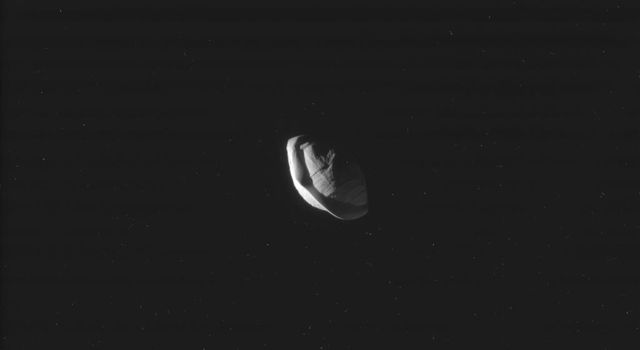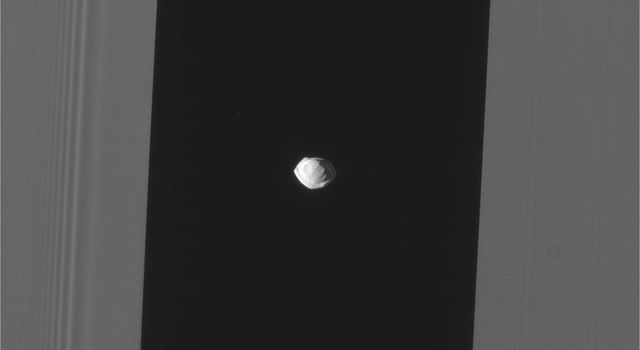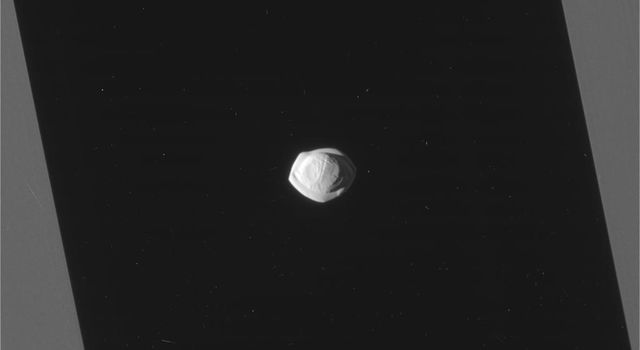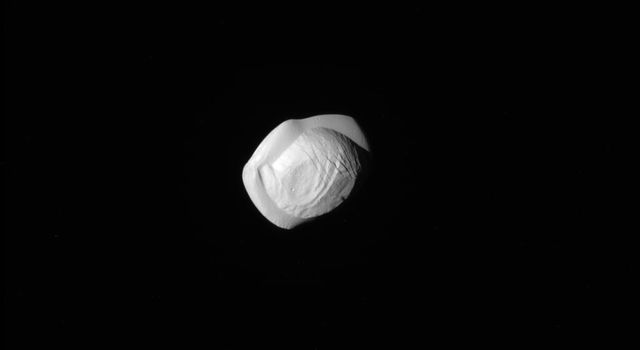.
10.03.2017
Cassini Reveals Strange Shape of Saturn's Moon Pan
› Larger view
These raw, unprocessed images of Saturn's tiny moon, Pan, were taken on March 7, 2017, by NASA's Cassini spacecraft. The flyby had a close-approach distance of 24,572 kilometers (15,268 miles).
These images are the closest images ever taken of Pan and will help to characterize its shape and geology.
Quelle: NASA
---
These stereo views, or anaglyphs, highlight the unusual, quirky shape of Saturn's moon Pan. They appear three-dimensional when viewed through red-blue glasses with the red lens on the left.
The views show the northern and southern hemispheres of Pan, at left and right, respectively. They have been rotated to maximize the stereo effect.
Standard (non-stereo) versions of these views are presented in PIA21436.
Pan has an average diameter of 17 miles (28 kilometers). The moon orbits within the Encke Gap in Saturn's A ring. See PIA09868 and PIA11529 for more distant context views of Pan.
Both of these views look toward Pan's trailing side, which is the side opposite the moon's direction of motion as it orbits Saturn.
These views were acquired by the Cassini narrow-angle camera on March 7, 2017, at distances of approximately 16,000 miles or 25,000 kilometers (left view) and 21,000 miles or 34,000 kilometers (right view).
Image scale in the original images is about 500 feet (150 meters) per pixel (left view) and about 650 feet (200 meters) per pixel (right view). The images have been magnified by a factor of two from their original size.
Quelle: NASA





